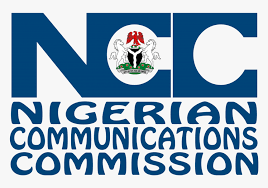The Nigerian Communications Commission (NCC) has said it is taking a decisive regulatory move to ensure sustainability, profitability and fair competition in the Special Numbering Service (SNS) segment of the nation’s telecommunications sector.
The commission stated that the move was based on the decision of the Commission to hold a Stakeholders’ Forum on the ‘Determination of Call Termination Rate for Special Numbering Service Providers in Nigeria. ‘
The forum which held in the NCC Head Office in Abuja, was attended by representatives of Mobile Network Operators (MNOs), Special Numbering Service (SNS) providers and other stakeholders who participated actively in the discussions.
Addressing the gathering, the Director, Policy, Competition and Economic Analysis at NCC, Yetunde Akinloye, said the meeting was convened following the extensive work of a committee set up by the Commission to look into the issues and complaints emanating from the SNS segment of the telecoms market.
According to her, a key concern is the perception of high cost of delivering services to end-users in the SNS segment.
She clarified: “This meeting is convened to discuss issues pertaining to the special numbering services (SNS) segment of the Nigerian telecommunications market.
“Statutorily, the NCC is the custodian and manager of the toll-free and non-toll-free numbers licenses, on behalf of the Federal Government of Nigeria”, Akinloye added.
The Director explained that owing to the scarce and finite nature of the numbers in the sector, the NCC, as the regulator, was under obligation to ensure the utilisation of the numbers by the licensees in a way that delivers value to the final consumers and ensures sustainability of the industry.
She said: “The SNS has been in existence for the past 15 years, with some licensees actively engaged in the segment. However, we have noted some observations and complaints from different quarters on the use of these numbers. We have observed, for instance, that there has been no effective utilisation of the numbers.”
Akinloye also said the Commission had observed that the uptake of the numbers has been abysmally poor, contrary to NCC’s expectation as the sectoral regulator. She stated that NCC has also received complaints from the licensees regarding the perceived high rates aand charges by Mobile Network Operators (MNOs) who are owners of the major infrastructure being used by SNS providers to deliver services to end users.
According to her, based on this, the NCC set up a committee to do a thorough review of the market segment; research similar markets in other jurisdiction for benchmarking; and determine the appropriate call termination rates, through proper investigation, consultation and stakeholder engagements.
She said the Committee had done extensive work in this regard and as part of its rule-making process and regulatory transparency, the NCC has organised the consultative forum “to share outcomes of the Committee’s findings with the licensees, discuss the regulatory interventions that need to be taken and get inputs from all MNOs, SNS providers and other relevant stakeholders.”
Also speaking during the meeting, Director, Technical Standards and Network Integrity, NCC, Bako Wakil, lamented that the SNS segment of the market has not been fully maximized because of the cost elements involved.
However, he explained that if cost can be reduced, there will be greater benefits from economies of scale. “So, there has to be a way of making people use the service more if the price is appropriate. In the last 15 years of introducing SNS providers, there are less than 3,000 people using the service and yet, we have licensed additional number of players in the segment. Therefore, we are looking at profitability, sustainability and vibrancy of the Value-Added Service segment,” he said.
After taking inputs from representatives of MNOs and SNS providers at the forum, participants agreed to schedule another date for the second phase of the stakeholders’ forum during which more contributions will be taken to enrich the quality of decisions in that regard.
Meanwhile, the second meeting of the forum has been scheduled to take place in Lagos on 14th December 2021 and the commission has urged stakeholders to submit additional inputs and send to the Commission by November 30, 2021 for timely assessment and collation before the second meeting.






